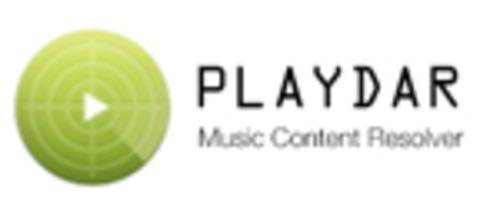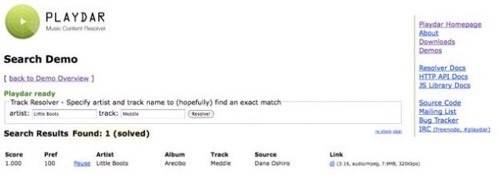Let’s face it: the music industry is broken. Labels charge stations and providers exorbitant fees; independent sites have little chance of recouping their costs; and in the end, the listening experience is fragmented and confusing.

In our current model, a company like Grooveshark pays a fee for your stream even if you have access to a song via a separate paid subscription service or download. In other words, labels are getting paid twice on songs you already own the listening rights to. In order to change that, Playdar offers us a chance to search for music by artist and song as well as access the files we already own.
While services like Twones aggregate Web-based music profiles, Playdar goes one step further by scanning local files, network files and the Web to find a match. With Playdar, users allow the tool to scan their desktops, networked machines and music subscription profiles before streaming a Web-based alternative like Last.fm or Imeem.

As streaming music competitors Rdio, MOG and Spotify race to launch in the US, Playdar may be the advantage they need to reduce costs and load times. Playdar ensures that if you’re a music startup company and your users already own a track, you don’t have to pay for them to enjoy it again and again.
While the project may seem ambitious, Playdar creator Richard Jones is already a veteran of the music startup scene. In his third year of college, he created Audioscrobbler – the technology that now powers Last.fm‘s music recommendation engine. Armed with his knowledge of Last.fm, as well as help from the creator of the XSPF music playlist format Lucas Gonze, Jones has yet another chance to build a music discovery engine.
To try out some early demos and applications, visit playdar.org.

















